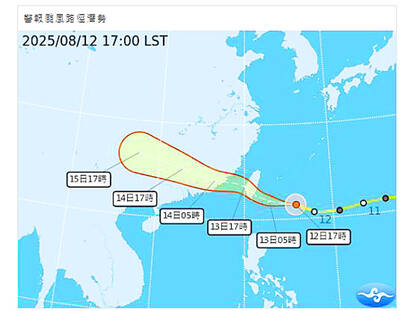Italy’s vaccination campaign is gathering speed. The country is considering the possibility of letting citizens receive second shots while on holiday.
Europe’s third-largest economy has accelerated its vaccination campaign, with more than 500,000 shots given per day. This means most second doses are scheduled for August, when most Italians are on holiday.
While regional and national authorities debate the logistics of such a step, allowing shots away from home would boost the country’s battered tourism industry.
COVID-19 vaccines are highly effective even after the first dose, according to a large-scale study by the Italian National Institute of Health.
Infections, hospitalizations and deaths all declined significantly about 14 days after the first shot. After 35 days, infections were 80 percent lower than among those who had not received a dose, while hospitalizations were 90 percent lower and deaths 95 percent lower.
More than 7 million Italians who had received at least one vaccine dose between Dec. 27 last year and April 4 were surveyed. Two-thirds were given the BioNTech-Pfizer vaccine, while 29 percent received AstraZeneca PLC’s shot.
A health travel pass in the EU could be available from about June 20, French Secretary of State for European Affairs Clement Beaune said in an interview yesterday on Europe 1 radio.
The pass would show either proof of vaccination against COVID-19, immunity due to past infection or the result of a negative polymerase chain reaction test.
France would implement its own health pass from June 9 for major gatherings of more than 1,000, Beaune said.
In the UK, which is allowing leisure travel to resume from today, the spread of the Indian variant could threaten the final phase of lockdown easing set for June 21, British Secretary of State for Health and Social Care Matt Hancock said.
Meanwhile, a cyclone is set to hit the western coast of India, prompting authorities already grappling with a deadly second virus wave to begin evacuating citizens.
Cyclone Tauktae is expected to make landfall on Tuesday morning in the southern districts of Gujarat, with wind speeds touching 175km per hour, the India Meteorological Department said.
Authorities in Mumbai have already moved hundreds of COVID-19 patients to other facilities.

DEFENSE: The first set of three NASAMS that were previously purchased is expected to be delivered by the end of this year and deployed near the capital, sources said Taiwan plans to procure 28 more sets of M-142 High Mobility Artillery Rocket Systems (HIMARS), as well as nine additional sets of National Advanced Surface-to-Air Missile Systems (NASAMS), military sources said yesterday. Taiwan had previously purchased 29 HIMARS launchers from the US and received the first 11 last year. Once the planned purchases are completed and delivered, Taiwan would have 57 sets of HIMARS. The army has also increased the number of MGM-140 Army Tactical Missile Systems (ATACMS) purchased from 64 to 84, the sources added. Each HIMARS launch pod can carry six Guided Multiple Launch Rocket Systems, capable of

GET TO SAFETY: Authorities were scrambling to evacuate nearly 700 people in Hualien County to prepare for overflow from a natural dam formed by a previous typhoon Typhoon Podul yesterday intensified and accelerated as it neared Taiwan, with the impact expected to be felt overnight, the Central Weather Administration (CWA) said, while the Directorate-General of Personnel Administration announced that schools and government offices in most areas of southern and eastern Taiwan would be closed today. The affected regions are Tainan, Kaohsiung and Chiayi City, and Yunlin, Chiayi, Pingtung, Hualien and Taitung counties, as well as the outlying Penghu County. As of 10pm last night, the storm was about 370km east-southeast of Taitung County, moving west-northwest at 27kph, CWA data showed. With a radius of 120km, Podul is carrying maximum sustained

Tropical Storm Podul strengthened into a typhoon at 8pm yesterday, the Central Weather Administration (CWA) said, with a sea warning to be issued late last night or early this morning. As of 8pm, the typhoon was 1,020km east of Oluanpi (鵝鑾鼻), Taiwan’s southernmost tip, moving west at 23kph. The storm carried maximum sustained winds of 119kph and gusts reaching 155kph, the CWA said. Based on the tropical storm’s trajectory, a land warning could be issued any time from midday today, it added. CWA forecaster Chang Chun-yao (張竣堯) said Podul is a fast-moving storm that is forecast to bring its heaviest rainfall and strongest

TRAJECTORY: The severe tropical storm is predicted to be closest to Taiwan on Wednesday and Thursday, and would influence the nation to varying degrees, a forecaster said The Central Weather Administration (CWA) yesterday said it would likely issue a sea warning for Tropical Storm Podul tomorrow morning and a land warning that evening at the earliest. CWA forecaster Lin Ting-yi (林定宜) said the severe tropical storm is predicted to be closest to Taiwan on Wednesday and Thursday. As of 2pm yesterday, the storm was moving west at 21kph and packing sustained winds of 108kph and gusts of up to 136.8kph, the CWA said. Lin said that the tropical storm was about 1,710km east of Oluanpi (鵝鑾鼻), Taiwan’s southernmost tip, with two possible trajectories over the next one